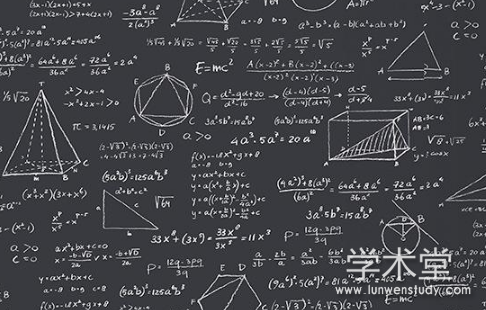数学教育硕士论文(最新6篇)之第三篇
摘 要
在“高考指挥棒”下,高中数学教师更为关注学生的成绩,忽视学生获取知识的兴趣和动机,这样不利于培养全面发展的人才。作为教师,应该以学生的发展为本,落实立德树人的根本任务,运用激励教育原则去激发学生的兴趣。
本文从高中数学课程的特点入手,通过调查研究的方法,深入了解激励教育原则在高中数学教学中的应用现状,通过对调查结果进行分析,高中数学教师在把握课程理念方面存在偏差,课堂教学方面实施激励措施不到位。针对其存在的问题,以人的全面发展理论、主体性教育理论和波利亚的数学教学理论为理论依据,为了在高中数学教学过程中实施激励教育,提出了四个原则:发展性原则、动力性原则、激励相容原则、师生同步原则。提出从帮助高中数学教师形成激励型认识信念、提高高中数学教师自身激励认知水平和培养高中数学教师激励型人格魅力三方面建立激励型高中数学教师队伍;从创设问题情境、增强学习材料的趣味性、采用多样化的教学方法、发挥教师的主导性与学生的主体性、提供学生获得成功的机会五方面创设激励型高中数学课堂,并将激励教育原则和实施策略在高中数学教学设计和数学课堂中付诸实施。激励教育在高中数学教学中的有效实施,能为学生的可持续发展和终身学习创造条件,促使学生全面发展。
关键词:高中数学教学,激励教育,激励型教师,激励型课堂

Abstract
Under the "college entrance examination baton", high school mathematics teachers pay moreattention to students' score and ignore students' interest and motivation in acquiring knowledge,which is not conducive to the development of all-round development talentsAs a teacher, weshould take the development of students as the basis, implement the fundamental tasks of LideShuren, and use the principle of incentive education to stimulate students' interest
Starting from the characteristics of high school mathematics curriculum, this paper deeplyunderstands the application status of motivational education principles in high schoolmathematics teaching through the method of investigation and research Through the analysis ofthe survey results, high school mathematics teachers have deviations in grasping the curriculumconcept, classroom teaching Implementation incentives are not in placeIn view of its existingproblems, based on the theory of human comprehensive development, the theory of subjectiveeducation and the theory of mathematics teaching in Polya, in order to implement incentiveeducation in the process of high school mathematics teaching, four principles are proposed:
developmental principles, The principle of dynamics, the principle of incentive compatibility, andthe principle of synchronization between teachers and studentsThis paper proposes to establish ateam of inspiring high school mathematics teachers from three aspects: helping high schoolmathematics teachers to form motivational cognitive beliefs, improving high school mathematicsteachers' self-motivation and cognition level, and cultivating high school mathematics teachers'
incentive personality charmIncentive-based high school mathematics classrooms are createdfrom the five aspects of creating problem situations, enhancing the interest of learning materials,adopting diverse teaching methods, giving play to teachers' leadership and students' subjectivity,and providing students with opportunities for success And implementation strategies areimplemented in high school math instructional design and mathematics classroomsThe effectiveimplementation of incentive education in high school mathematics teaching can create conditionsfor students' sustainable development and lifelong learning, and promote students' all-rounddevelopment
Key words: High school mathematics teaching; incentive education; motivational teacher;motivational classroom
目 录
第 1 章 绪 论
1.1 研究问题的提出
1.1.1 高中数学课程的特点
数学来源于对现实世界的抽象,具有一定的严谨性。在初中学习过程中,很多知识点是通过举例和发现规律概括出来的,只需掌握基本定义和简单运用,而高中数学在严谨性方面要求更高,逻辑要更加严密,要求学生具备一定的数学思维能力与推理能力。数学的应用十分广泛,已经渗透到了我们日常生活的方方面面,与人们实际生活有着紧密的联系。
数学有着自己独特的语言符号系统。相较于初中数学而言,高中数学语言在符号、图形、式子、术语等方面运用的更广泛。
高中数学的种种特点于高中生来说体现为难学难懂,不会应用。因此在高中数学教学中,教师应该做到认真思考,合理创设问题情境,增强数学学习材料的趣味性,从而激发学生求知的欲望;合理进行教学启发,采用多样的教学方法,理清学习脉络,从而提高学生的数学思维能力,形成数学应用意识。
1.1.2 高中数学教学中激励教育原则的应用现状
教育要使受教育者在以下四个方面获得收益:收获知识、锻炼能力、感受快乐、增进健康;而激励教育则要使受教育者的相关收益极大化。对于高中数学教学而言,如何实现学生的收益最大化,使得学生得以全面发展?这就需要教师在数学课堂中充分使用激励教育原则,落实立德树人的根本任务。因此进行“激励教育原则在高中数学教学中的应用研究”是十分必要的,而在这之前我们要深入了解激励教育原则在高中数学教学中的应用现状。从而笔者 2018 年 10 月针对高中数学教师做了一次调查。本次调查采取问卷的形式,在岳阳地区随机抽取 110 名高中数学教师参加调查,其中有效问卷 100 份,从调查结果分析,高中数学教学中,激励教育原则的应用有以下几个方面的问题:
(1)41%的高中数学教师最为关注“学生的成绩”,对于学生的自我发展和综合能力相对而言关注有所欠缺。高中数学教师受到“高考指挥棒”的影响把教学过程当成提分的“主战场”,这很有可能出现重知识轻能力的教学现象。
(2)61%的高中数学教师关注“课堂教学预设”而忽视更易培养学生创新能力的“生成环节”,64%的高中数学教师关注基础知识和技能的教学,对于学生创新能力的培养重视不够。
(3)36%的高中数学教师会为了激发学生的兴趣特意设计教学情境,45%的偶尔会这么做,33%的高中数学教师会在教学过程中运用不同的教学方法,44%的偶尔会这么做;这说明,部分高中数学教师在进行教学设计时没有深刻理解教材,没有把握数学内容的本质。
从以上调查分析可知,在高中数学教学中实施激励教育有两个待解决的问题:第一,教师因“应试教育”的大环境影响把教学的关注点过多地放在学生的成绩上,忽视对学生数学兴趣的培养,因此,帮助高中数学教师形成激励型认识信念是实施激励教育的根本。
第二,创设激励型课堂的措施不到位,教师对教学中的生成环节重视不够,忽视对学生学习动机与自信心的培养,因此,教师在教学过程中充分应用激励教育策略是实施激励教育的保障。
【由于本篇文章为硕士论文,如需全文请点击底部下载全文链接】
1.2 研究的意义
1.3 文献综述
1.3.1 国内外激励教育的论述
1.3.2 激励教育原则在数学教学中具体应用的研究
1.4 本文的写作思路和研究方法
第 2 章 激励教育的理论依据和原则
2.1激励教育的理论依据
2.1.1 马克思主义关于人的全面发展理论
2.1.2 主体性教育理论
2.1.3 波利亚的数学教学理论
2.2 激励教育的原则
2.2.1 发展性原则
2.2.2 动力性原则
2.2.3 激励相容原则
2.2.4 师生同步原则
第 3 章 激励教育原则在高中数学教学中的实施策略和教学案例分析
3.1 建立激励型高中数学教师队伍
3.1.1 帮助高中数学教师形成激励型认识信念.
3.1.2 提高高中数学教师自身激励认知水平
3.1.3 培养高中数学教师激励型人格魅力
3.2 创设激励型高中数学教学课堂
3.2.1 创设问题情境
3.2.2 增强学习材料的趣味性
3.2.3 采用多样化的教学方法
3.2.4 发挥教师的主导性与学生主体性
3.2.5 提供学生获得成功的机会
3.3 激励教育实施策略下的教学过程设计及反思
第 4 章 总结与展望
4.1 研究总结
4.2 研究展望
参考文献
附 录
致 谢





